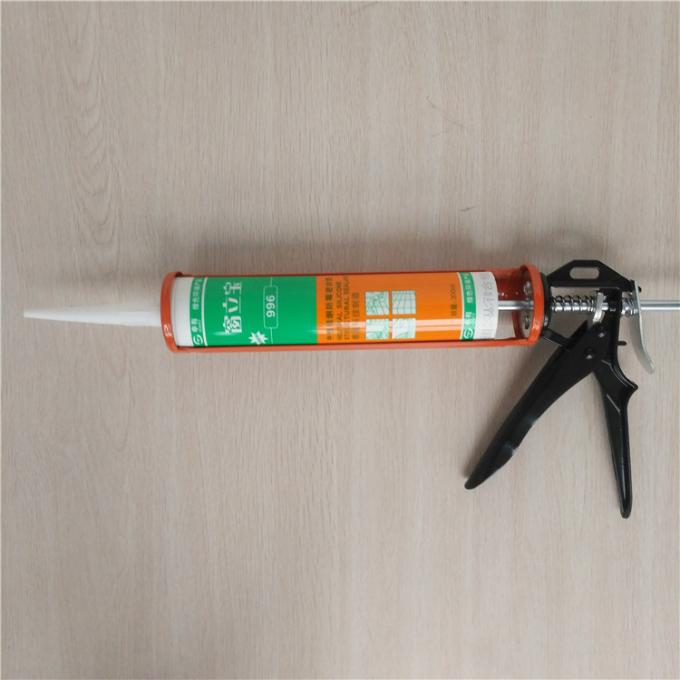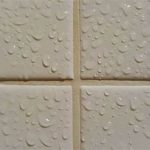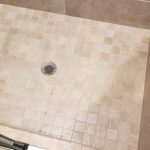Non-shrink grouts are a type of cementitious material used in construction and other applications to fill joints, gaps, and cavities and provide a waterproof sealant layer between two surfaces or materials.
This article will discuss the benefits and drawbacks of using non-shrink grouts for waterproofing, as well as explore the different types available on the market.
It will also provide an overview of how to correctly install non-shrink grout to ensure maximum performance and longevity. Finally, it will answer the question: Is non-shrink grout waterproof?
Contents
- 1 Is Non-Shrink Grout Waterproof?
- 2 What is Non-Shrink Grout?
- 3 Benefits of Non-Shrink Grout
- 4 Types of Non-Shrink Grouts
- 5 How to Install Non-Shrink Grout
- 6 Does Non-Shrink Grout Have Waterproof Qualities?
- 7 Advantages and Disadvantages of Using Non-Shrink Grout for Waterproofing
- 8 Other Alternatives To Non-Shrink Grout For Waterproofing
- 9 Conclusion
Is Non-Shrink Grout Waterproof?
Non-shrink grout is an ideal choice for flooring in wet areas, as it is waterproof.
It is a cement-based material that does not shrink after application and can be used to fill gaps between tiles or bricks. Non-shrink grout is also resistant to cracking and can be used outdoors in areas exposed to the elements.
It comes in a variety of colors, so you can choose the one that best suits your needs. Non-shrink grout is easy to apply and requires minimal maintenance.
Its waterproof properties make it a great option for areas that are prone to moisture, such as bathrooms, kitchens, and laundry rooms. If you’re looking for a durable and water-resistant option for your flooring project, non-shrink grout is worth considering.
What is Non-Shrink Grout?
Non-shrink grouts are a type of cementitious material that is formulated with special additives that prevent it from shrinking when it dries.
This makes it ideal for filling large voids or joints between two surfaces or materials. It is also extremely durable and can withstand extreme temperatures and pressure, making it perfect for areas prone to water damage.
Benefits of Non-Shrink Grout
Non-shrink grout has many advantages over traditional cementitious materials such as mortar or concrete. Firstly, it is much easier to apply than traditional materials, as it does not require any mixing or curing time.
Secondly, its superior strength means that it can withstand extreme temperatures and pressures without cracking or breaking down over time.
Finally, its non-shrinking properties mean that it provides an effective waterproof sealant layer between two surfaces or materials, which prevents water ingress into the area below.
Types of Non-Shrink Grouts
There are several different types of non-shrink grouts available on the market today, including epoxy-based grouts, acrylic-based grouts, polyurethane-based grouts, and latex-based grouts.
Each type has its own unique properties and benefits, so it is important to choose the right one for your specific application to ensure maximum performance and longevity.
How to Install Non-Shrink Grout
Installing non-shrink grout correctly is essential to ensuring maximum performance and longevity.
Firstly, you must ensure that the surface area to which you are applying the grout is clean and free from any dirt or debris before you begin the application.
Secondly, you must mix your chosen type of non-shrink grout according to the manufacturer’s instructions before applying it with a trowel onto the surface area in question. Finally, give your newly installed, non-shrink grouted surface area enough time to dry before using any equipment on top of it.
Does Non-Shrink Grout Have Waterproof Qualities?
Yes. Non-shrink grouts are designed specifically with waterproofing properties in mind, meaning they can be used effectively as a sealant layer between two surfaces or materials that prevents water ingress into the area below them.
Additionally, some types, such as epoxy-based, have additional properties such as chemical resistance, which can help further protect against water damage over time if correctly applied according to the manufacturer’s instructions.
Advantages and Disadvantages of Using Non-Shrink Grout for Waterproofing
The main advantage of using non-shrink grout for waterproofing purposes is its easy application process compared to traditional cementitious materials such as mortar or concrete, which require mixing and curing times before use.
Additionally, its superior strength means that it can withstand extreme temperatures and pressures without cracking or breaking down over time, making it perfect for areas prone to water damage such as bathrooms or kitchens where moisture levels tend to be higher than usual due to regular use by people living in these areas who regularly bathe, shower, etc.
However, one disadvantage could be that some types, such as polyurethane-based ones, may be more expensive than other types due to their additional properties mentioned above.
Other Alternatives To Non-Shrink Grout For Waterproofing
If you’re looking for alternatives, there are several other options available depending on your specific requirements, including:
- Rubberized asphalt membranes provide excellent protection against water ingress but may require professional installation.
- Liquid rubber coatings offer good protection against water but may require frequent reapplication.
- Polyethylene sheet membranes offer good protection against water but may need additional protection against punctures.
- Finally, silicone sealants offer excellent protection against water but may need reapplication every few years depending on use, exposure levels, etc.
Conclusion
Non-shrink grout is an excellent choice for flooring in wet areas due to its waterproof properties.
It is easy to install, and the results are durable and long-lasting. Non-shrink grout also offers superior adhesion and strength, which makes it a great option for a variety of applications.
Additionally, it is highly resistant to cracking, shrinking, and staining, which makes it an ideal choice for areas that will be subjected to high levels of moisture. With its many advantages, non-shrink grout is an ideal solution for any project requiring waterproof flooring.





